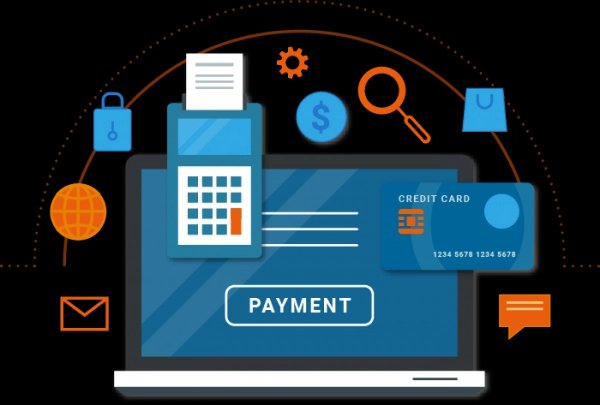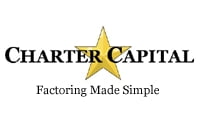Many business owners shudder when they hear the term “high-risk”, but it’s not as bad as it sounds. Being a high risk merchant is a completely viable way to do business and accept payments for goods and services. There are some very specific guidelines and policies regarding a high risk merchant account that are different from a traditional merchant account, so you need to understand the basics.
This article is designed to walk you through what it means to be a high risk merchant. We will also touch on the basics of a high risk merchant account and when you might consider using one.
What is Considered a High Risk Business Merchant Account?
A merchant account is an account that allows a business to accept payments online, which is an essential function in today’s marketplace. A high risk merchant account is specifically designed for businesses that have either struggled financially or are in an industry that is considered high risk. These are accounts that are offered by lenders and payment processors specifically for high risk businesses.
High risk industries often have monthly sales volumes of more than $20,000 or have average credit card sales of more than $500. Your industry could also be classified as high risk if it has a propensity for fraud or even a high volumes of returns. Merchants that have landed on the TMF match list will also be classified as high risk until they have been removed. Another determining factor is your personal credit. A low score could put your business in the high risk category.
Some examples of high risk industries are as follows:
• eCommerce
• Financial services
• Legal services
• Travel and hospitality
• Health and wellness
• Gambling
The industries and businesses that are considered high risk are all over the board and they differ from one lender to the next. This doesn’t indicate anything negative about the business or industry. Rather, it is an indicator of how much risk the lender has to take on in order to do business with these industries.
Banks like to see a steady flow of income going in and out of a business account in order to feel comfortable. If you have a business that does not have a predictable cash flow each month, you could be labeled high risk. Additionally, your business could be classified as high risk if you have a chance of getting lots of chargebacks each month.
Who Determines Whether we are a High Risk Merchant?
Each lender determines their own risk tolerance and therefore which merchants they classify as high risk. A processor is less likely to grant merchant account services to a business that they have deemed as high risk. Processors have different guidelines around these types of accounts, so it makes sense to shop around if you’re looking for a high risk merchant account.
The high risk classification is typically based on the underwriting guidelines for the bank with whom you’re trying to do business. It can also be dependent upon their assessment of the following things:
• History of chargebacks
• Monthly cash flow
• Frequency of returns
• Your personal credit
• The reputation of your industry
All of these elements play a role in the bank’s decision to approve you for a traditional account, or to suggest a high risk account. Some banks offer both services to their customers and some don’t. If you’ve been classified as high risk, you can get a second opinion from another lender. If they say the same thing, you should switch gears and start looking at various high risk accounts and their contracts.
When to use High Risk Merchant Services
You should use a high risk merchant account only after you’ve spoken with several banks or lenders about getting a traditional account. As mentioned earlier, some lenders have a higher risk for tolerance than others. It’s possible that you’ll be denied for a traditional account from one lender, but approved by another.
If you’ve been classified as high risk by multiple lenders, there’s nothing left to do but move forward with a high risk merchant account. This is NOT the end of your company! It’s simply a cost of doing business.
How to get a High Risk Merchant Account
You can do some basic research online to find some of the best high risk accounts available. This will take some time because you need to look into the different contractual terms and fees. High risk merchant accounts can be tricky in how they charge fees, so be sure to read the fine print.
If you’re not sure where to start, searching online or through industry specific forums are a great start. Knowing what questions to ask will help make the process of finding a merchant provider easier and much faster. Merchants can waste time by finding out during the application process that the payment processor does not accept your business type.
There are other things to consider and questions to keep in mind when looking into different processors. You should be looking at the fee schedule and costs associated with each account. You should also look at the contract for termination guidelines.
Many high risk accounts get shutdown for seemingly no reason, when in reality, it was written in the contract they signed. This can be devastating to your business, so be sure that you understand what the lender expects from you and how to avoid this.
There is also value in speaking directly to a processor or lender about your specific situation and what the best options might be. Many lenders offer a variety of products for small businesses, so it pays to ask more questions. These types of accounts are designed to help you, not hurt you.
Conclusion
Although the term “high-risk” might be a scary one, there’s really nothing to be worried about. Whether you have a traditional merchant account with lower fees, or a high-risk account with higher fees, you can still process transactions. Depending on the reason for your high risk classification, it’s possible that you only need the high risk account until you get things back in order.
Whatever you do, be sure to read and understand the fine print of your high risk merchant account! This is the most important advice we can give you. The high risk account is not a threat to your business, but breaking some of the guidelines within the contract could be!
Author Bio
Cris Carillo is the co-founder of Allied Payments. Allied Payments provides online payment processing services, specializing in medium to high risk merchant account solutions.







